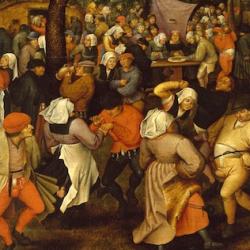Adam S. Miller begins his editorial introduction to Fleeing the Garden (vii-ix) by observing the confusions that surround the terms “literal” and “figurative” in biblical interpretation: “the word literal often just functions as shorthand for the claim that the text refers to something real. In such cases, the word is used without regard to how something is referenced—the designation of how a text refers being the kind of work the word literal is meant to do—and instead is used to... Read more















